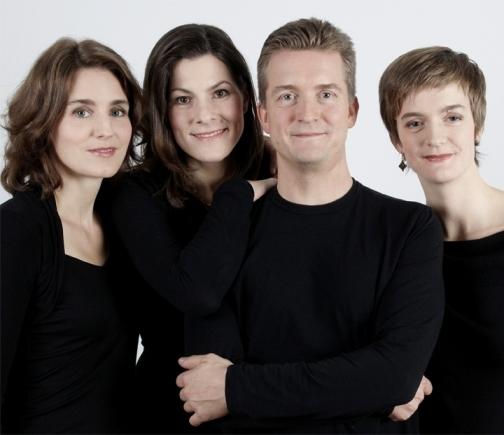Their oaky, cultured and selectively scary-wild playing seemed to cast long autumn shadows over a sparse but intent audience. This is the kind of rare programme top violinist Christian Tetzlaff, his cellist sister Tanja and friends like to work on when they get time to play together. There was Haydn for starters, but not the kind of jolly curtainraiser we're usually given; Dvořák, but not the blithe American; and Sibelius's Voces Intimae, the only great quartet of the 20th century yet to be widely acclaimed as such, with strange, authentic ideas in every bar and a slow movement to match any in Beethoven's late masterpieces.
It was clearly going to take the kind of earnest soul-searching this scrupulous group believes in to do the Sibelius justice. I was mindful of what Seppo Kimanen, cellist of the Jean Sibelius Quartet, told me about Voces Intimae in an interview for the Barbican's 2007 Sibelius Unbound festival: "With the right feeling it can bring an audience to its knees, but if the musicians are not 100 per cent there, it can leave everyone asking awkward and unanswerable questions."
Well, I can't say I had all the answers by the end of the performance but, yes, the Tetzlaffs were indeed "100 per cent there", frighteningly so in the dizzying finale which seems to relive the homecoming of Sibelius's early Kalevala hero Lemminkäinen. The rest very much belongs to the dark, concentrated era of his greatest crisis - an operation in 1908 for throat tumours which turned out to be benign but which brought him face to face with death. Most striking of all are the "intimate voices" of sudden, murmuring other-worldly minor chords that break across the Adagio di molto's late-Beethoven-style ruminations (why on earth did the over-subjective programme note omit all mention?). Impossible to imagine them done with more hushed intensity, or more philosophical questing than cellist Tanja brought to their extended return in the closing bars.
Otherwise, it's all forward movement in which one aphoristic idea of great beauty gets swept aside abruptly by the next, except for the weird eagle-circlings of the second scherzo, more of a quirky minuet with elaborate inner parts. All Finns, I'm sure, would approve the way the German quartet cut off abruptly when there was nothing more to say.
Yet above all it was the Tetzlaffs' resonant, golden sound and near-perfect intonation which guided us through the labyrinth: three of the players use instruments fashioned by the German maker Peter Greiner, while Tanja Tetzlaff spins refinement from a 1776 Guadagnini cello. All this gilded the song and the sadness in the more straightforward slow movement of Dvořák's A flat Quartet. Again, you'd think from the programme notes that once the anguished introduction is over, this is sunshine nearly all the way - but not in this thoughtful performance. I liked the way the team kept the Molto vivace's sophisticated variant on a folk dance on a leash until its return, truly released by the reflection at the heart of the movement.
Late mastery was apparent throughout here, while Haydn's relatively early G minor Quartet, though it comes third in the so-called "Sun" set, sounded more like a sunset. Not, in any case, that any of the master's singular 70 or so quartets are simple kick-off fare. But what odd shapes for an opening movement from 1772; how troubling and lopsided the so-called minuet. In fact the only unambiguous jollity throughout the entire evening came from the encore, the third movement of Mendelssohn's A minor Quartet, Op 13, No 2. The masterful Christian Tetzlaff was in the limelight here, proving that he can do easy charm as well as the stern rigour which was the keynote of a haunting, unforgettable evening.
- See what's on at the Southbank Centre this season
- Download the Tetzlaff Quartet's recording of Sibelius's Voces Intimae Quartet on Amazon













Add comment